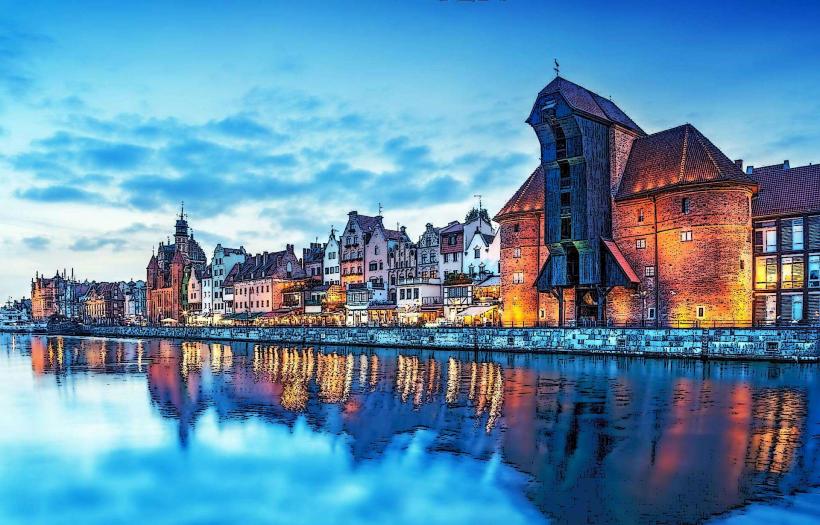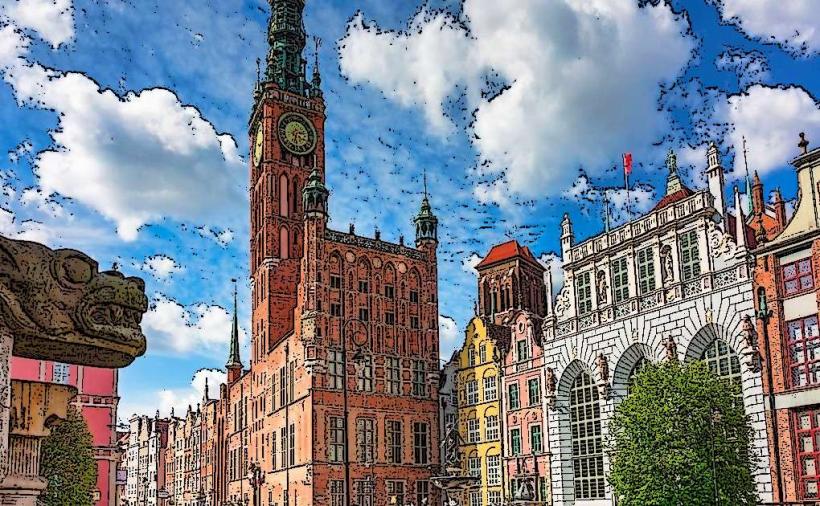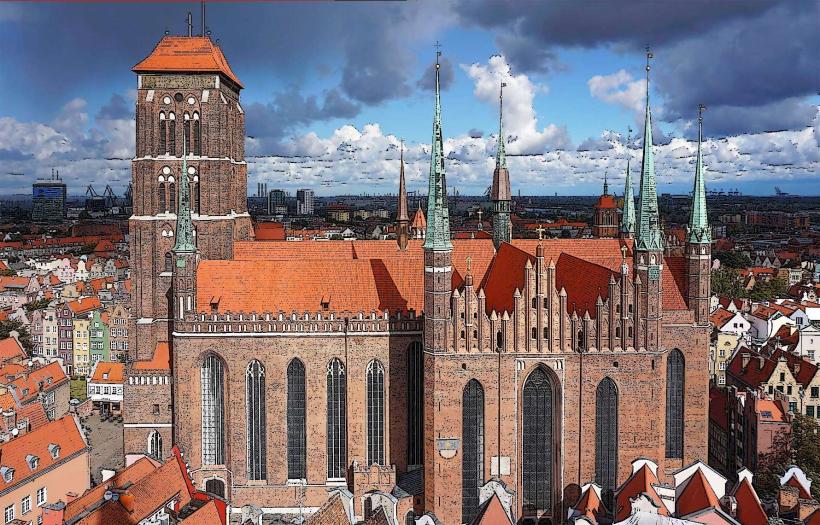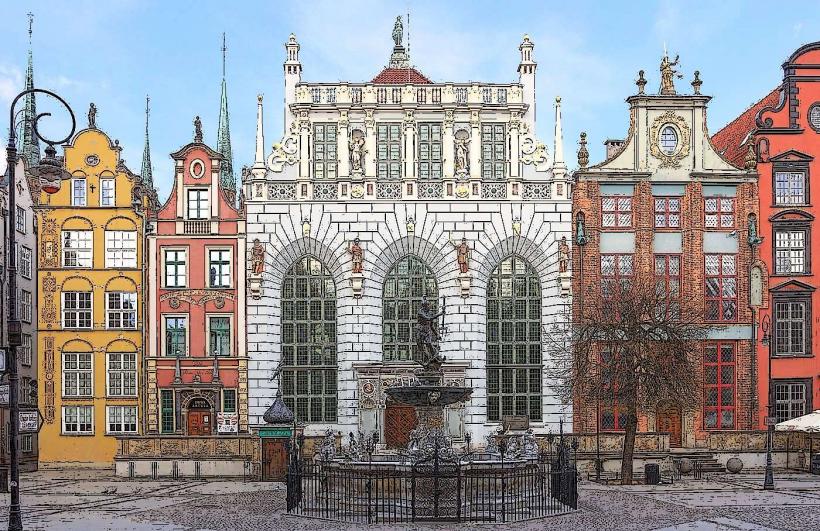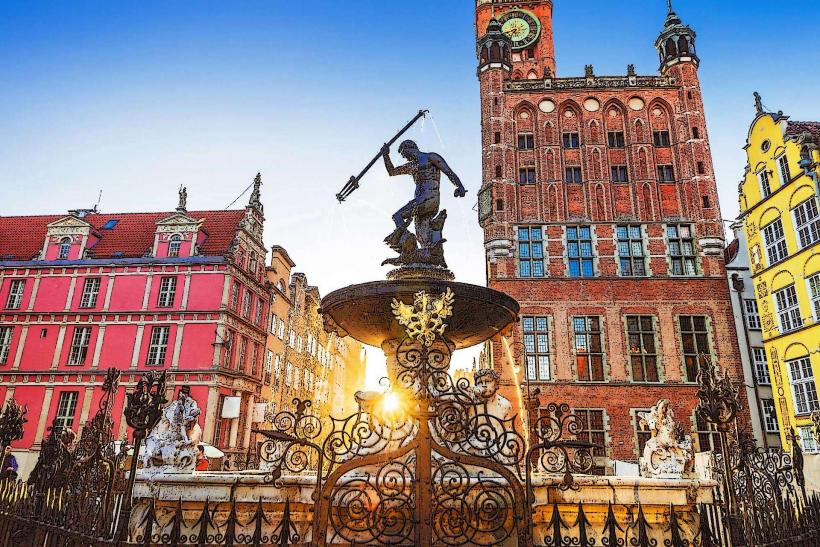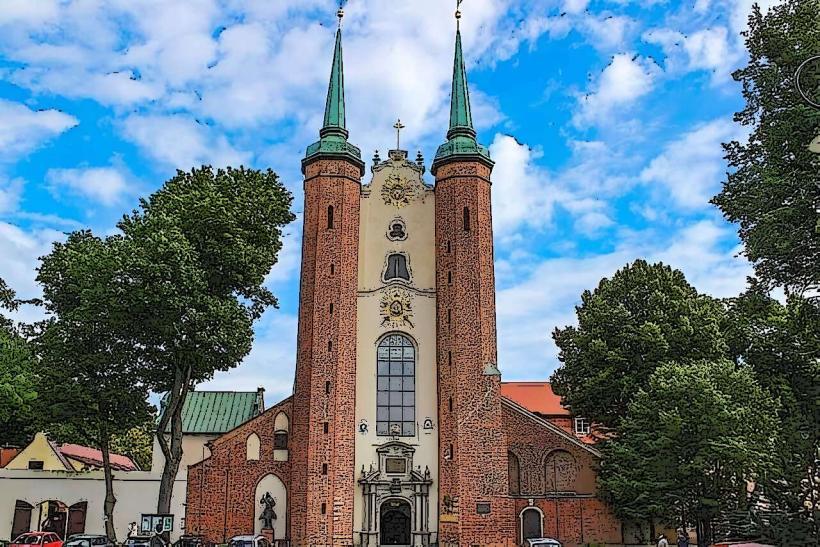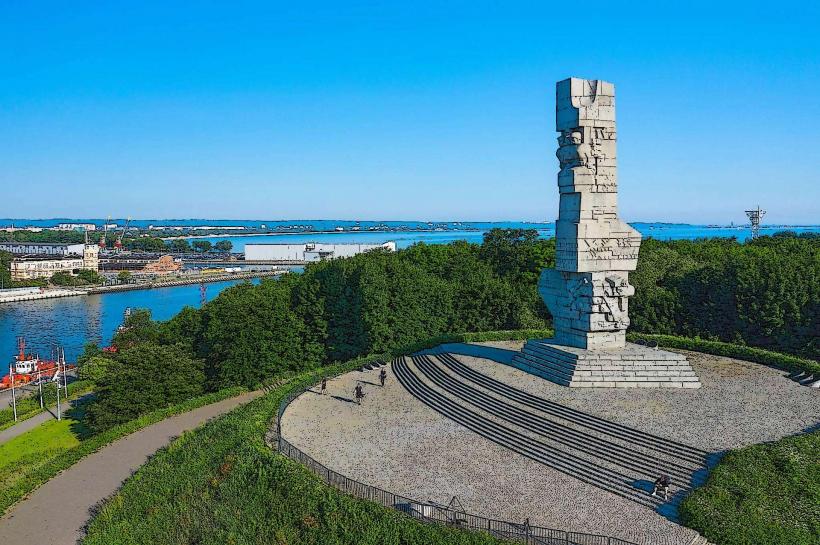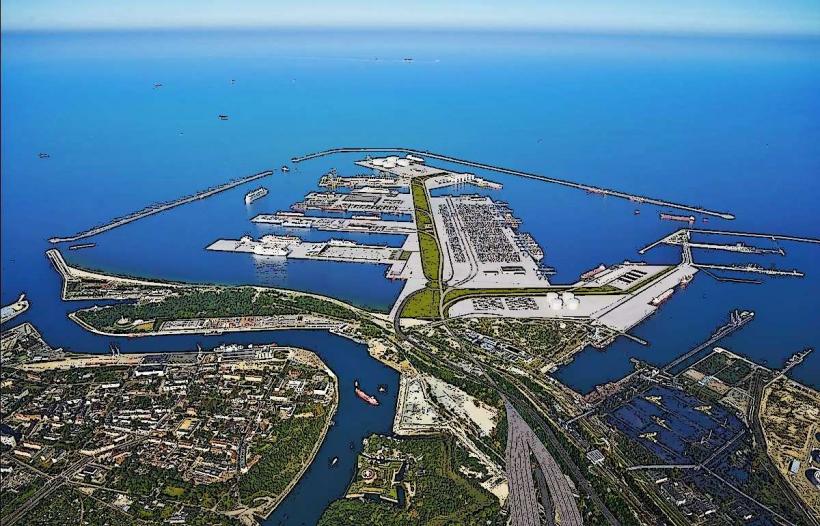Information
Landmark: European Solidarity CentreCity: Gdansk
Country: Poland
Continent: Europe
European Solidarity Centre, Gdansk, Poland, Europe
The European Solidarity Centre (Europejskie Centrum Solidarności) is a museum and educational facility located in Gdańsk, Poland, situated on the grounds of the former Lenin Shipyard. It serves as the primary institution dedicated to the history of the Solidarity trade union and the anti-communist movements of Central and Eastern Europe.
Visual Characteristics
The building features a distinctive architectural design with slanted walls clad in rusted corten steel plates, intended to resemble the oxidized hull of a ship under construction. It spans five floors with a total floor area of 25,000 square meters. The interior includes a central atrium filled with natural light, indoor trees, and industrial materials like concrete and glass.
Location & Access Logistics
The centre is located at Plac Solidarności 1, approximately 1km north of the Gdańsk Główny railway station. It is accessible by foot from the city center or via tram lines 3, 7, 8, and 10 (Stocznia Gdańska stop). Paid underground parking is available on-site, and bicycle racks are positioned near the main entrance at Gate No. 2.
Historical & Ecological Origin
The project was initiated in 2005 and the building was completed in 2014, designed by the FORT Architects firm following an international competition. It was established to preserve the legacy of the 1980 shipyard strikes and the subsequent peaceful revolution. The site occupies a historically industrial zone near the confluence of the Motława and Martwa Wisła rivers.
Key Highlights & Activities
The permanent exhibition consists of seven themed halls utilizing multimedia installations, original artifacts (such as the 21 Demands plywood boards), and heavy industrial machinery. Visitors can access a rooftop observation deck offering views of the shipyard cranes and the Old Town. The facility also houses a library, archives, and a dedicated "Play Department" for children.
Infrastructure & Amenities
The building contains public restrooms, a museum shop, and a café and restaurant on the ground floor. It is fully wheelchair accessible with elevators serving all levels. High-speed 5G cellular signal is available throughout the structure, and free public Wi-Fi is provided for visitors.
Best Time to Visit
Internal exhibitions are best viewed during weekday mornings (10:00–12:00) to avoid school groups and large tours. The museum is closed on Tuesdays. For photography of the corten steel facade, the late afternoon provides the most dramatic lighting. The rooftop deck is best visited during clear weather for maximum visibility of the Baltic Sea port.
Facts & Legends
The building's entrance is located just meters away from the historic Shipyard Gate No. 2, where Lech Wałęsa addressed the striking workers in 1980. A unique architectural feature is that the building's walls tilt at various angles, with no two walls being perfectly parallel, symbolizing the social upheaval and change the movement initiated.
Nearby Landmarks
Monument to the Fallen Shipyard Workers of 1970: 0.1km South
Gdansk-shipyard_gdansk" class="underline">Gdańsk Shipyard Gate No. 2: 0.05km West
Roads to Freedom Exhibition: 0.2km West
Museum of the Second World War: 0.7km Southeast
Johannes Hevelius Monument: 0.8km South

